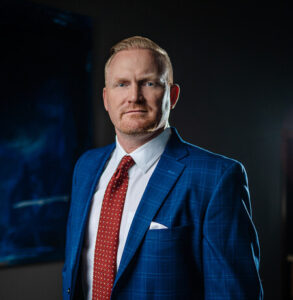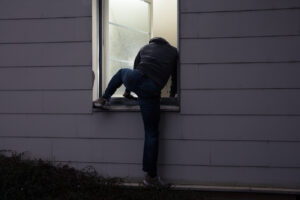
If you have been involved in a car accident or some other type of accident, it is likely that you suffered many types of damages. Damages are the losses you suffered because of the accident, and they can be economic or non-economic.
After a car accident, many people immediately think of damages relating to an injury, such as medical bills, lost wages, and pain and suffering. However, property damage is any damage that is done to either real or personal property as a result of the accident. If someone else caused the accident, they may be responsible for compensating you for these damages.
What Types of Property Damage Are Covered After a Car Accident?

After a car accident, you may be dealing with several different types of property damage. When you file an insurance claim after your accident, you may be entitled to compensation for all those damages. Some common examples of property damage after a car accident include:
- Towing expenses
- Vehicle repair bills
- Car storage fees
- Damage to personal property inside the vehicle
- Replacement cost if your vehicle is totaled
Oklahoma is an at-fault state when it comes to auto insurance. This means that the driver who caused the accident is also responsible for the damages they cause. For this reason, Oklahoma requires certain minimum levels of liability insurance.
Oklahoma drivers are required to carry at least $25,000 in property damage coverage. This means that the insurance policy will cover up to $25,000 in property damage caused by the insured driver. If an accident results in more damage than that, the driver could be held personally responsible for the difference.
First-Party Claims vs. Third-Party Claims For Property Damage
Whether you file a first-party or third-party claim after a car accident often depends on who was at fault. Filing a first-party claim means that you will file a claim with your own insurance. Generally, you will be required to pay a deductible when filing a first-party claim. After an accident, your own insurance may pay for things like:
- Towing: If your car is disabled as a result of the accident, your insurance policy will typically cover the cost of towing to a repair facility.
- Rental Car: Many insurance policies pay for the cost of a rental car while your vehicle is being repaired. Remember that your policy likely has limits, which could be as low as $25 per day.
- Collision Coverage: Collision coverage pays for the repairs to your vehicle if you were responsible for the accident. If your vehicle is totaled, then your policy may pay either the car’s actual cash value or the replacement value.
- GAP Insurance: If you have an auto loan, having GAP insurance is often a good idea. In many cases, the value of the vehicle is less than the amount owed on the loan. If your vehicle is totaled, GAP coverage pays for the difference in value.
Third-party claims are used when another driver is at fault for the accident. In this case, you file a claim with the at-fault driver’s insurance company, and any compensation you receive will be based on the terms of their policy. When third-party claims are involved, you will not be required to pay a deductible prior to getting property damage benefits.
Some insurance companies might try to steer you to their preferred repair shops. These shops might not always perform high-quality work, so be sure to check reviews or ask for recommendations from trusted sources prior to starting any repairs. Remember that you have the right to take your vehicle to the shop of your choice.
In some cases, an insurance adjuster might want to make you a settlement offer based on their assessment of the damage. Make sure that you get repair estimates from reputable repair shops prior to accepting any settlement offer. Your vehicle could have hidden damage that may not be apparent to the adjuster just by performing a visual inspection of the vehicle.
Lastly, if your car is totaled, make sure you demand the full value of your car. The value will be determined based on several factors, including:
- The year, make, and model of the vehicle
- The vehicle’s mileage
- The condition of the car prior to the accident
- Any special equipment or accessories installed on the vehicle
- Your location
- The current market for similar vehicles in your area
You do not have to accept the first offer the insurance company makes to you. If you believe they are lowballing you about the value of your car, you can always present your evidence and attempt to negotiate a higher settlement.
Other Damages Available After a Car Accident
If you have been hurt in an accident, you may be entitled to much more than just property damages. You may be entitled to both economic and non-economic damages for your injuries. This can include:
- Medical bills
- Lost wages
- Pain and suffering
- Diminished quality of life
- Loss of consortium
The best way to determine all the damages to which you may be entitled is to seek the help of an experienced lawyer. Your lawyer can help assess all your damages and help you get the compensation you are owed.
How to Get Help After a Car Accident
After your accident, contact an experienced car accident lawyer as soon as possible. The experienced team at Laird Hammons Laird Personal Injury Lawyers has 95 years of combined experience helping accident victims get the money they deserve, and we are ready to help you, too. Contact us today to schedule your free consultation at (405) 703-4567.
